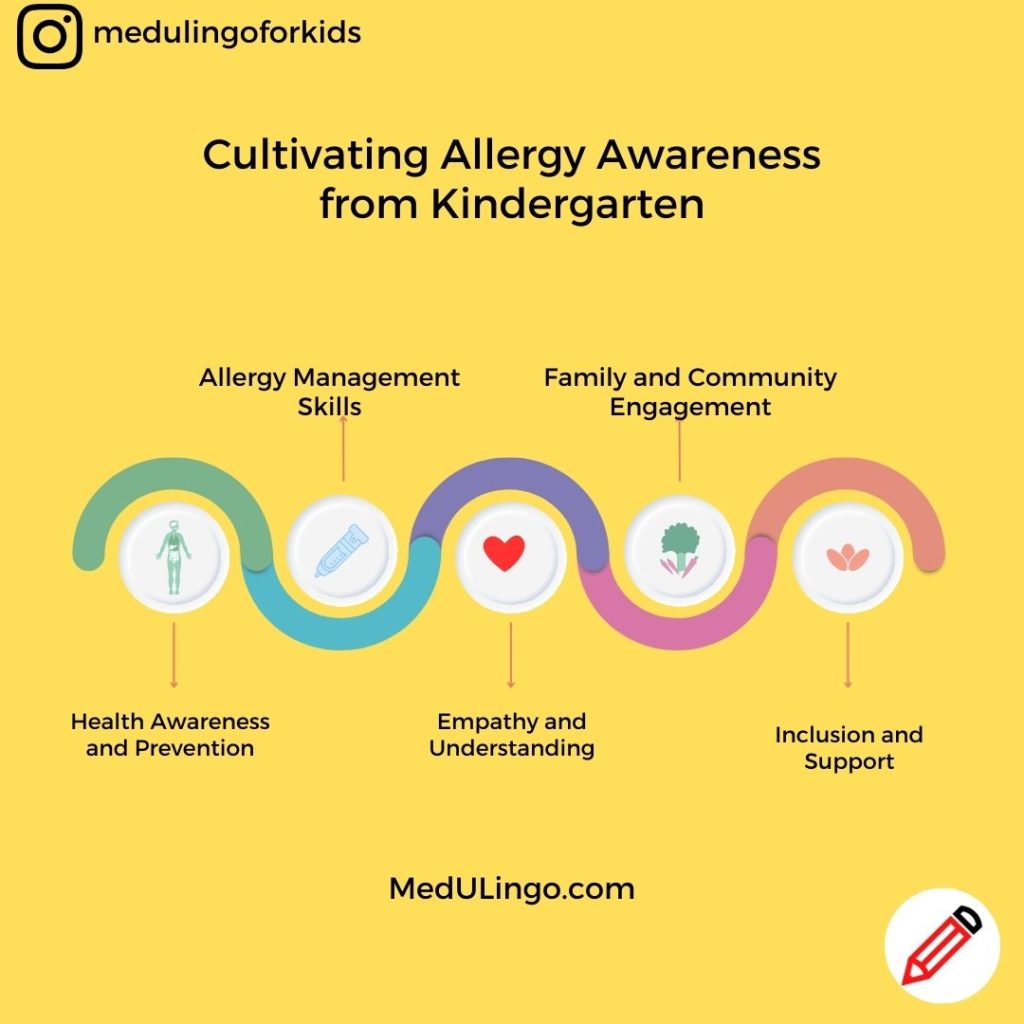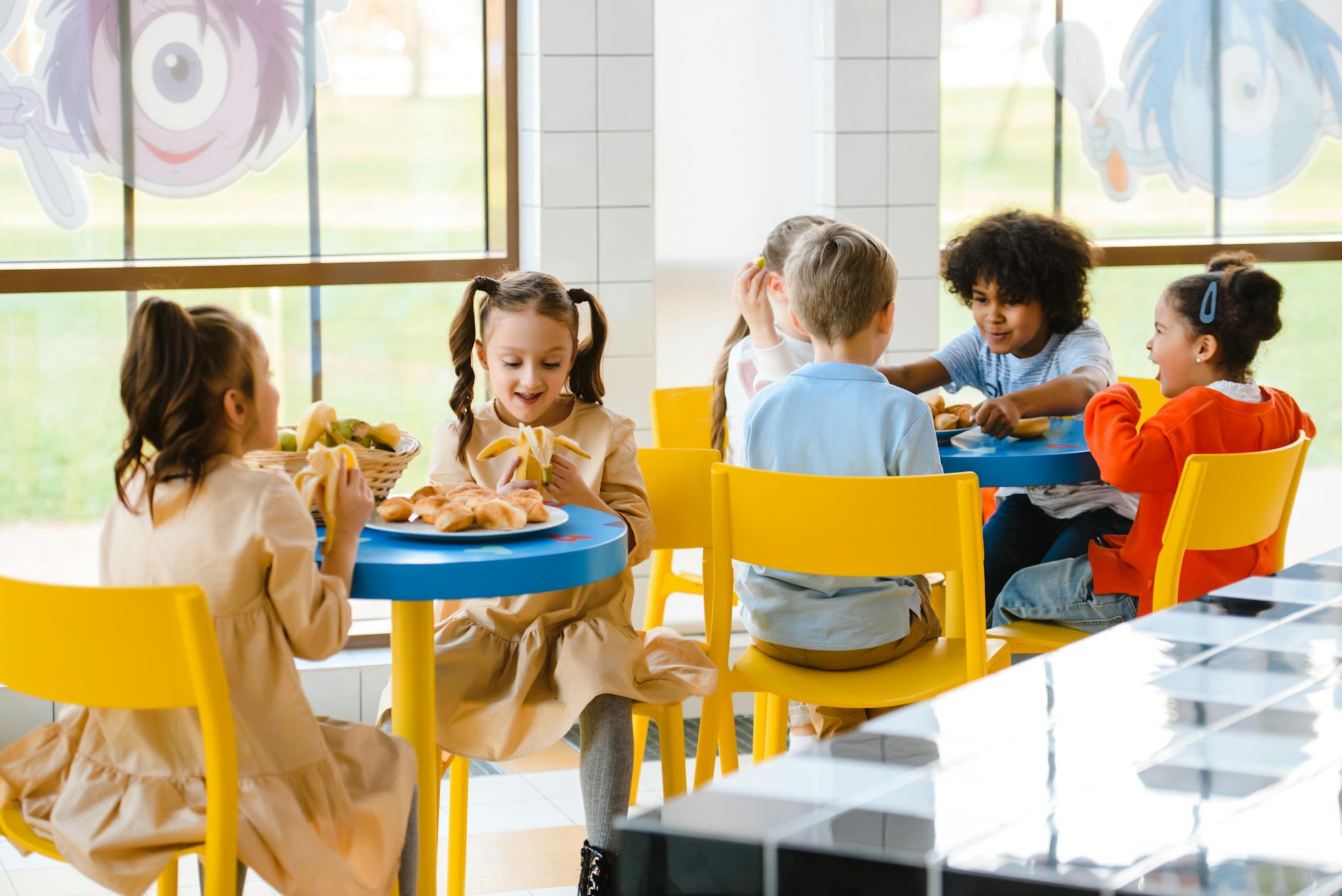In early childhood education, laying the groundwork for allergy awareness from kindergarten emerges as a pivotal step towards fostering a culture of health, empathy, and inclusion. As allergies continue to impact individuals of all ages, backgrounds, and communities, equipping young learners with essential knowledge and skills about allergies from an early age offers a myriad of benefits that extend far beyond the classroom. From promoting health awareness to fostering empathy and understanding, developing medical literacy about allergies from kindergarten with an activity book like A to Z Rare Allergies serves as a transformative pathway towards building healthier, more informed communities.

1. Promoting Health Awareness and Prevention
Kindergarten marks the beginning of a child’s formal education journey—a time ripe with opportunities to instill foundational habits of health and wellness. By introducing age-appropriate concepts about allergies, common triggers, and preventive measures, educators lay the groundwork for promoting health awareness and prevention strategies from an early age. Through interactive discussions, storytelling, and hands-on activities, children learn about the importance of allergy management, recognizing symptoms, and seeking help when needed. By fostering a culture of health consciousness from kindergarten, educators empower children with the knowledge and skills to make informed decisions about their health and well-being.
2. Fostering Empathy and Understanding
At the heart of medical literacy about allergies lies the capacity for empathy, respect for diversity, and understanding towards individuals with allergies. Through stories, role-playing activities, and discussions about food allergies, asthma, and environmental sensitivities, children learn to recognize and appreciate the unique needs and experiences of others. By fostering a culture of empathy and inclusion, educators create opportunities for children to support and advocate for their peers with allergies, fostering a sense of belonging and acceptance within the classroom and beyond.
3. Empowering Allergy Management Skills
Developing medical literacy about allergies from kindergarten empowers children with essential knowledge and skills to manage allergies effectively. From learning about common allergens to understanding an epinephrine auto-injector is used, children acquire practical skills and habits that promote allergy management and safety. Educators play a crucial role in teaching children how to recognize allergic reactions, seek help, and communicate their allergies to others in a clear and assertive manner. By instilling confidence and competence in allergy management skills, educators equip children with the tools they need to navigate everyday environments, promote safety, and advocate for their health needs.
4. Building a Culture of Inclusion and Support
Developing medical literacy about allergies from kindergarten fosters a culture of inclusion and support for children with allergies within the classroom and school community. Educators create opportunities for open dialogue, collaboration, and problem-solving, ensuring that children with allergies feel supported, understood, and included in all aspects of school life. By implementing allergy-friendly policies, practices, and accommodations, educators promote a safe and inclusive environment where all children can thrive academically, socially, and emotionally. Through education, advocacy, and partnership with families, schools become catalysts for promoting allergy awareness, empathy, and acceptance among students, staff, and parents.
5. Encouraging Family and Community Engagement
The benefits of developing medical literacy about allergies from kindergarten extend beyond the classroom, fostering opportunities for family and community engagement in promoting allergy awareness and safety. Educators involve parents, caregivers, and community members in allergy education initiatives, creating a shared sense of responsibility and collective action towards building safer and more supportive environments for children with allergies. From allergy education workshops to community awareness campaigns, families and communities become active participants in advocating for policies and practices that prioritize the health and well-being of all children.
Cultivate Medical Literacy for Allergy Awareness from Kindergarten
In conclusion, the benefits of developing medical literacy about allergies from kindergarten with a resource like A to Z Rare Allergies are profound, shaping the trajectory of individual health and community well-being for generations to come. By empowering young learners with essential knowledge, skills, and attitudes about allergies, educators lay the groundwork for a future where every child feels safe, supported, and included. As we embark on this journey of allergy awareness and education, let us embrace the transformative power of medical literacy from kindergarten, nurturing a generation of compassionate, informed, and allergy-conscious global citizens.
Through collaboration, education, and a shared commitment to promoting health and inclusion, we can create a world where allergies are understood, accommodated, and respected, fostering a culture of empathy, safety, and well-being for all.
===
Interested in teaching medical literacy pain free? Shop medical literacy resources!

This article was drafted by ChatGPT and edited by Joan Lee Tu, the founder of MedULingo.com.
You may also be interested in the following articles:
Clinical Reasoning in Grade Three with A-to-Z Medical History and Histology Lessons
How to Accommodate People with Chemical Allergies
Preventing Contact Allergies in Kids: A Guide for Parents – FREE DOWNLOAD
Consumer Literacy Scavenger Hunts – FREE DOWNLOAD
Eczema: The Contact Allergy Booklet
The Green Soap Girl and the Itchy Allergy
The Green Soap Girl Goes to the Beach
A to Z Medical Literacy: Childhood Rashes
A to Z Medical Literacy: Rare Allergies
Cultivating Allergy Awareness from Kindergarten with Medical Literacy
Planting Seeds: The Case for Developing Medical Literacy on Allergies in Kindergarten
The Benefits of Developing Medical Literacy About Dermatitis from Kindergarten
Planting Seeds: The Case for Medical Literacy on Dermatitis from Kindergarten
Safe Science: Guidelines for Handling Chemicals in Kids’ Science Activities
Safeguarding STEM Learning: Best Practices for Sanitizing LEGO in Education Programs
The Great Debate: Soap vs. Sanitizer in STEM Education Programs

